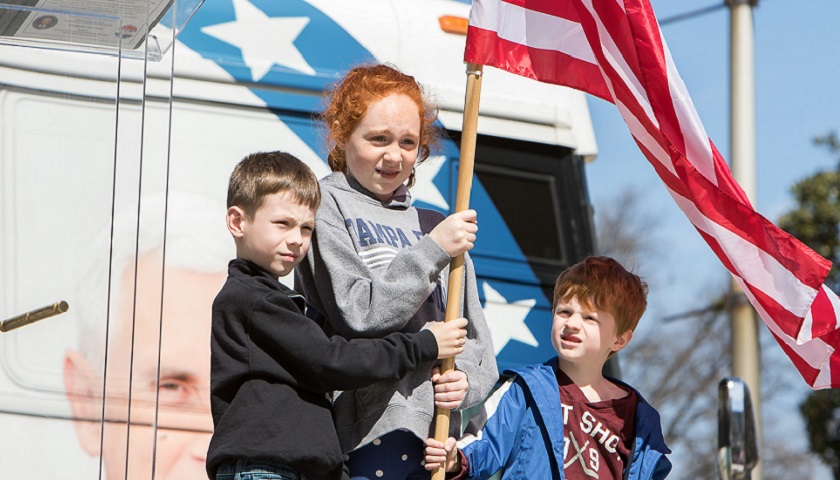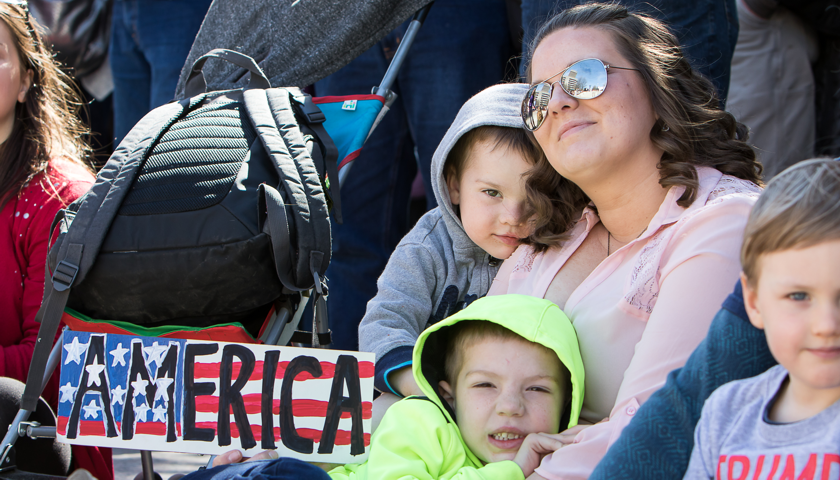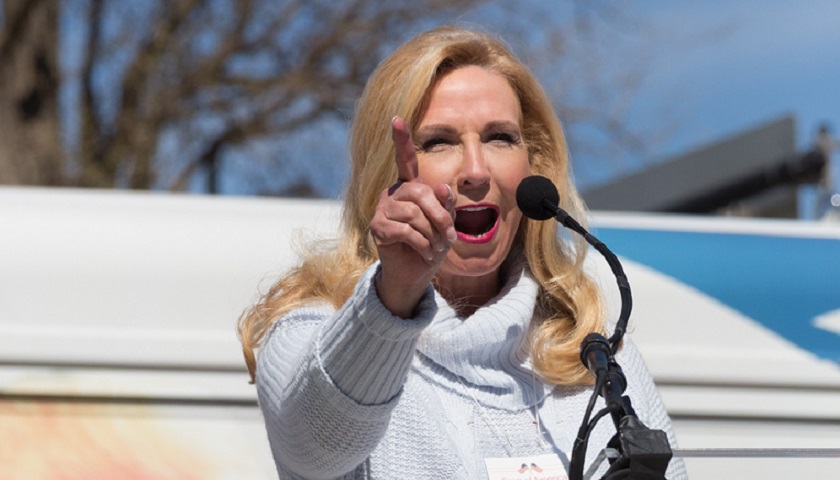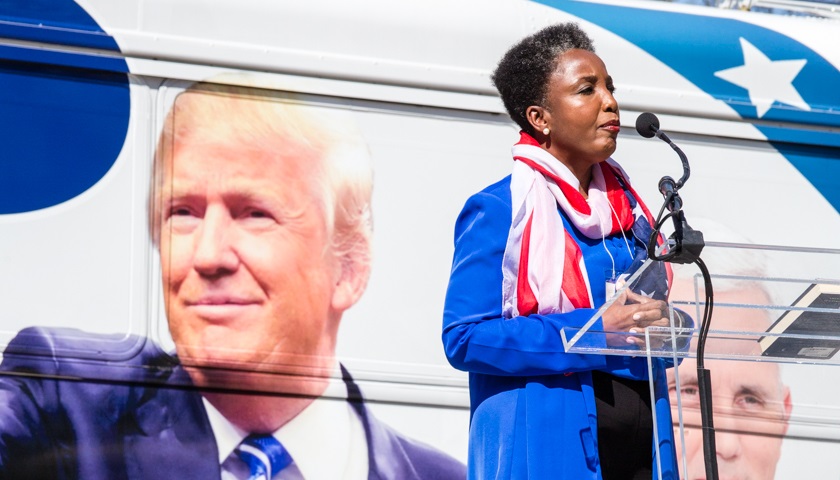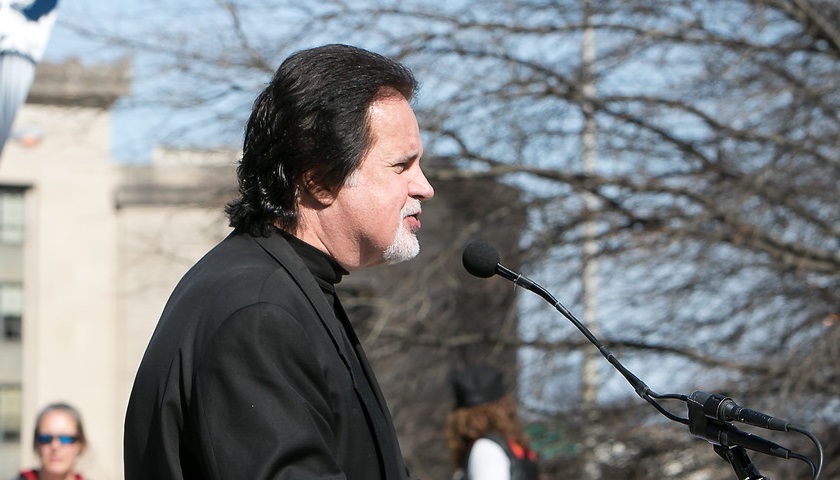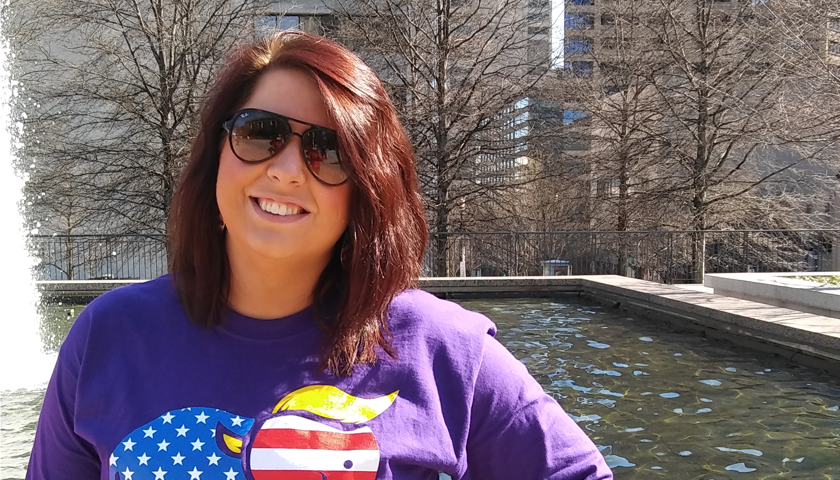In the midst of the speeches and songs that energized the huge crowd of 2,000 at the pro-Trump Spirit of America rally in Nashville on Saturday, one image emerged that captured the significance of the event.
Three young children stood on the stage, holding steadfastly on to the American flag, gazing out over the crowd just as the event was about to begin.
That image explains succinctly the oft-heard response among Tea Party activists, many of whom have now passed the age of sixty, when asked why they devote so much time and passion to the cause of liberty.
“We are doing this for our grandchildren,” they say.
“So that they will still have the great American republic we grew up in when they become adults.”
But all of these efforts won’t do much good, after all, if the succeeding generations for whom the Tea Party activists have toiled so long fail to embrace the American values of their parents and grandparents.
A quick look around at the culture–the conformist statism of the public schools and universities, the blatant bias of the media, the often anti-American attitudes that dominate pop culture and entertainment–suggests that there should be little surprise why the millennial generation, as a whole, has not embraced these traditional values.
Some take solace in that famous Winston Churchill saying.
“If you’re not a liberal when you’re twenty, you don’t have a heart. If you’re not a conservative when you’re forty you don’t have a brain.”
Many in the aging generation of Tea Party activists are waiting for time to have that common sense inducing effect on their children and grandchildren.
They find hope for the next generation in Proverbs 22:6:
“Train up a child in The Way he should go and when is is old he will not stray from it”
And on one beautiful Saturday morning in Nashville, Tennessee, the message seemed to resonate with three young children.
The oldest, a red-headed girl with a firm grip and determination, looks straight out into the crowd, perhaps at a parent or grandparent.
To her right, a dark haired young boy, perhaps her brother, squints into the crowd with a steely-eyed resolution that can only be described as an embodiment of the classic American can do spirit.
The boy looks out to the thousands of friendly faces looking back at him. Many of those faces are those of children his own age, brought there by their parents to learn the lessons of liberty, community, and fellowship – the building blocks of our American Exceptionalism.
Then there’s the youngest boy, a red-head, whose eyes take his gaze off to the right.
“You know, I think I can do this,” he seems to be saying.
Yes, we think you can.

